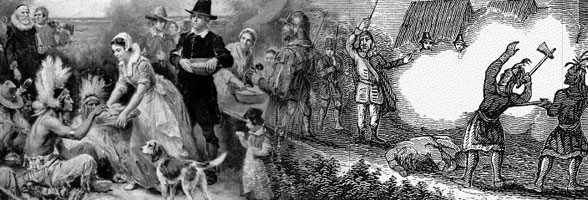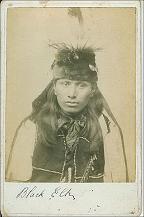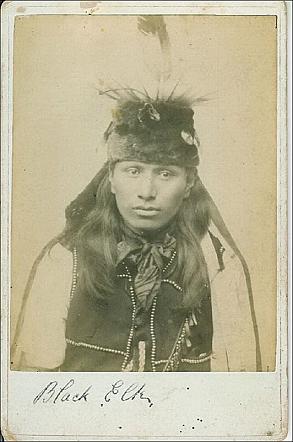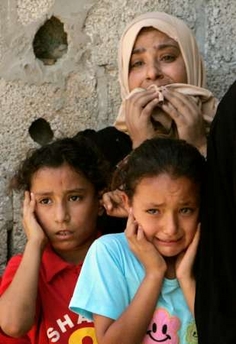Black Elk
As told to John G. Neihardt
In the summer of 1930, as part of his research into the Native American perspective on the Ghost Dance movement, Neihardt contacted an Oglala holy man named Black Elk, who had been present as a young man at the 1876 Battle of the Little Big Horn and the 1890 Wounded Knee Massacre. As Neihardt tells the story, Black Elk gave him the gift of his life's narrative, including the visions he had had and some of the Oglala rituals he had performed. The two men developed a close friendship. The book Black Elk Speaks, grew from their conversations continuing in the spring of 1931, and is now Neihardt's most familiar work. The current popularity of the book shows the growth of interest in the social and ethical analysis of Native American tribes.
Chapter 01 :: The Offering of the Pipe
My friend, I am going to tell you the story of my life, as you wish; and if it were only the story of my life I think I would not tell it; for what is one man that he should make much of his winters, even when they bend him like a heavy snow? So many other men have lived and shall live that story, to be grass upon the hills.
It is the story of all life that is holy and is good to tell, and of us two-leggeds sharing in it with the four-leggeds and the wings of the air and all green things; for these are children of one mother and their father is one Spirit.
This, then, is not the tale of a great hunter or of a great warrior, or of a great traveler, although I have made much meat in my time and fought for my people both as boy and man, and have gone far and seen strange lands and men. So also have many others done, and better than I. These things I shall remember by the way, and often they may seem to be the very tale itself, as when I was living them in happiness and sorrow. But now that I can see it all as from a lonely hilltop, I know it was the story of a mighty vision given to a man too weak to use it; of a holy tree that should have flourished in a people's heart with flowers and singing birds, and now is withered; and of a people's dream that died in bloody snow.
But if the vision was true and mighty, as I know, it is true and mighty yet; for such things are of the spirit, and it is in the darkness of their eyes that men get lost.
Pages: 1 · 2 · 3 · 4












































